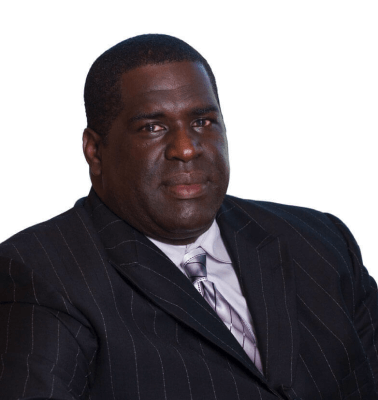DUI defenses that will require your testimony
You cannot be compelled to testify at your DUI trial, but if you do testify, you will be subject to cross-examination by the prosecutor. Therefore, depending on the facts of your case, it may not be advisable for you to testify. You should make the decision to testify only after careful consideration and consultation with your DUI attorney. See Deciding whether you will testify in your DUI trial.
However, your testimony will be necessary if you and your attorney decide to raise the following defenses and defense strategies during your DUI trial.
Your testimony is the only source of evidence and you are using a disconnect theory
If the officer did not ask you about your drinking pattern before the accident or record what you said, you may need to testify if your DUI attorney has decided to pursue a disconnect theory. There may be no other way to get the information to the jurors. A disconnect theory relies on showing that you behaved in a way that was completely inconsistent with the blood alcohol level measured by chemical tests, and therefore, the test results are suspect. In other words, a breathalyzer or blood or urine test showed you had a high alcohol level but you say that you had little to drink, you performed well on field sobriety tests, and you did not need to use a restroom.
You were exposed to toxins and your testimony will evoke sympathy
This is especially true of painters, auto mechanics and any one else who works around highly toxic materials. Many solvents, paints, lacquers etc. contain organic compounds that will show up as alcohol in many breath machines. Individuals who work around these substances on a regular basis will become saturated with the volatile substances. Later breath testing can be skewed by the exposure. A defense expert witness can explain and demonstrate the effects for the jury.
A DUI defendant in this situation will need to testify to show the actual exposure. Your DUI attorney may ask you to bring in the OSHA documentation for the chemicals to which you have been exposed. See If your defense is environmental exposure for some questions you may be asked at your DUI trial regarding this defense.
You have sufficient physical evidence to make up for slips
You and your DUI attorney may decide that you should testify when the physical evidence supports your testimony, and the physical evidence can make up for any slips you may have during the testimony. The best example of this is a rising alcohol case in which you have receipts for your purchase of the alcohol.
Most establishments have computerized records that allow you to obtain not just the receipt for payment of the tab, but a record of the time the check was opened, the name of the server, the type of drinks, the amount that was consumed, and the time of the closing of the tab.
With this in hand and proper preparation, you can testify. See If you claim your alcohol level was rising.
You have a medical condition that interfered with DUI test results
You may need to testify if you have a medical condition that affected your results on the breath, blood, or urine test or your performance on field sobriety tests. Conditions that could affect your performance on breath and blood tests include GERD, diabetes, and hypoglycemia. Your DUI attorney may decide to limit your testimony to your medical condition and not let you testify to the facts of the incident that led to the DUI charge to avoid cross-examination on that topic.
Demonstrating that you have a physical problem that interfered with field sobriety tests
Sometimes it is necessary to show the jury the physical problems that interfered with your performance on SFSTs. For example, a DUI defendant with an obvious leg or foot deformity that interfered with performance on field sobriety tests can take off a shoe or roll up a pant leg or wear shorts to show the jury the problem.
The DUI defendant can show the jury an injury or deformity without being required to testify. Physical demonstrations are non-testimonial. The defendant is not subject to cross-examination merely by showing part of his or her body to the jury.
You have a necessity defense
“Necessity” to drive may be a defense. One reason might be necessity to avoid domestic violence or almost any other violence situation. A second is a real emergency.
For example, in one case a man was sitting in his house drinking when he heard a horrendous screech and crash. Looking out his window he saw his six year old neighbor had been hit by a car and she was in bad shape. Somehow though drunk (and he admitted he was), he knew that the little girl would not survive if he waited for an ambulance. So, without consideration for his position, he put her in the car and rushed her to the hospital.
The entire emergency room staff testified that he had been correct. They were just barely able to save the little girl’s life. The ambulance arrival and return time would have been too long and she probably would not have survived.
The prosecution knew this was a tough case. They knew that the drive to the hospital would be allowed by the jury; in fact the judge had basically indicated the facts would not let the case go to the jury. The prosecution thanked the client for his heroics and instead prosecuted him for driving home.
Knowing this, the defense put the client on the stand to detail the events, the drive to the hospital with the crying and literally dying little girl. When then asked why he drove home, his answer was simple, he was done and that was where he needed to go. The jury delivered a not guilty verdict.
The moral of this story is that, given the right set of facts showing necessity, the jury may excuse otherwise illegal behavior, if they hear from you. You must admit that what you did was wrong, and that you would not have done it except for the extreme nature of the circumstances.
In another case, the DUI attorney argued to the jury that threats from the defendant’s very large drunk boyfriend to her nieces at a party led her to fear for all their safety. She was able to testify to the jury that she was so scared and the threat so real, that driving under the influence was the lesser of the evils.
In both of these types of cases, you cannot try to waffle on your own culpability. This is an all or nothing approach. The jury is not going to believe your necessity defense if you argue both that you had to drive under the circumstances and that you were not really intoxicated. To a jury this sounds like a straw grasp. Instead, you must step up, admit wrongdoing, and then explain the reason for it.
You have a SODDI defense
SODDI, “some other dude did it,” is one of the most commonly used defenses in criminal law. It is, however, rare in the DUI arena. Most DUI cases are premised on the simple fact that an officer saw you drive. In some cases though, such as accidents, hit and run, and citizen reports, the defendant is not behind the wheel when the officer confronts him or her. If that is your situation, your failure to testify will look quite bad to the jury.
Jurors will ask themselves why you did not testify. After all, if you weren’t driving, what do you have to hide? Sometimes this SODDI defense can be presented by the actual other driver. But more often than not, your testimony will be necessary as well.
The good news on the SODDI case is a lack of confrontational evidence. Since no one actually observed you driving, your DUI attorney’s job will be to explain the (1) circumstantial evidence and (2) any alleged admission.
The key here is you must be able to honestly and consistently testify you were not driving. The prosecutor can cross-examine you thoroughly on how drunk you were, how poorly you performed on SFSTs, and so forth. The only fact that matters is your testimony, “I was not driving.”













